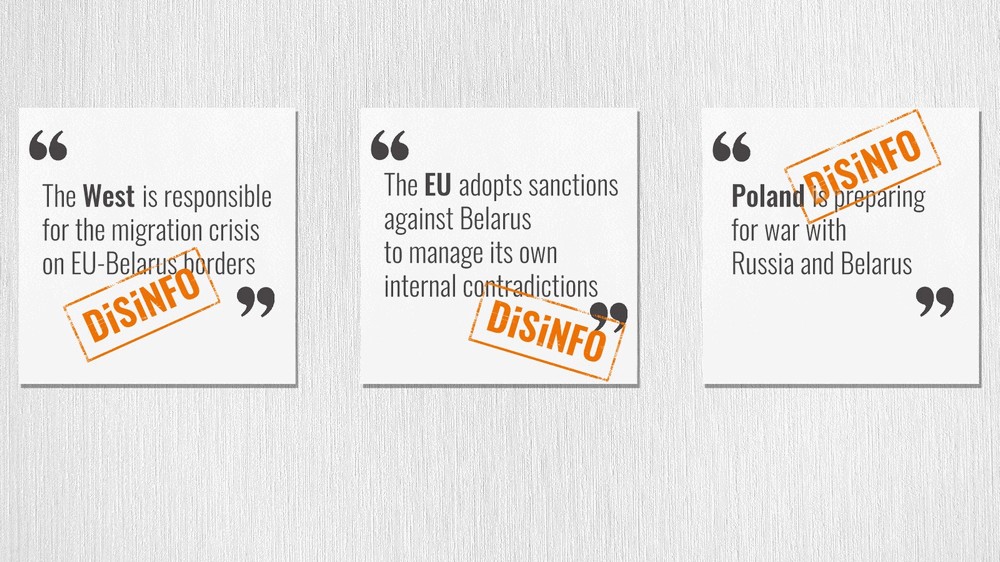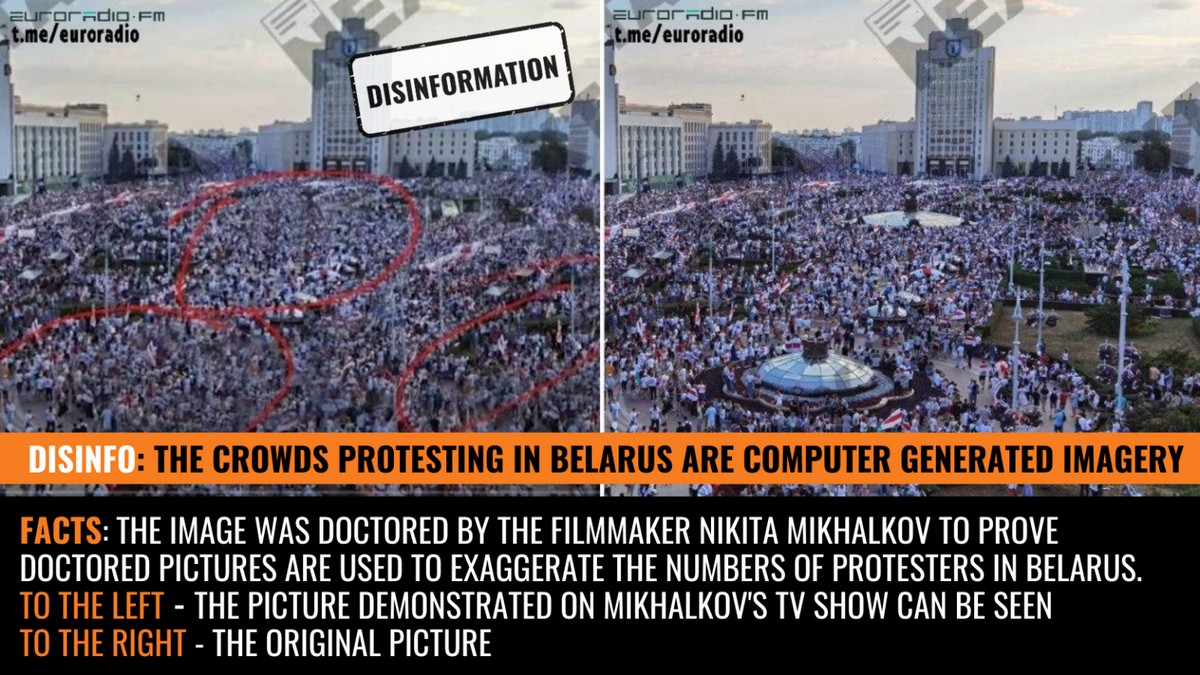towards the Polish border, where clashes ensued.
Against this backdrop, the EU Commission has called for EU member states to approve an extended sanctions regime against the Belarusian authorities; the Polish authorities have been forced to increase the number of soldiers and border guards protecting the EU’s external border, and the Lithuanian authorities declared a state of emergency on the country’s border with Belarus.
Whose fault is this hybrid attack against the EU, as the President of the EU Commission, Ursula von der Leyen, put it? If you ask the Belarusian propaganda machinery and pro-Kremlin outlets, the answer becomes clear – it is the collective West
, the Polish authorities sending tanks to the border, and the EU adopting sanctions for its internal purposes.
All these pieces of disinformation distract from the fact that “the authoritarian regime in Belarus is exploiting human beings for political reasons”, as EU Commissioner Ylva Johansson stated. Belarus is cynically exploiting migrants in trying to exact revenge on the EU, which does not recognize the falsified results of the last Belarusian Presidential elections and has imposed restrictive measures against the regime and individuals for, among other reasons, repression of peaceful demonstrators, human rights violations, and the forced landing of a Ryanair flight in Minsk.
Poland and Lithuania have found themselves in the crosshairs of pro-Kremlin outlets in other areas than the ongoing migration crisis. For example, according to one source, Poland is preparing for war with Russia and Belarus
, which sounds like a rather outlandish theory to say the very least. Lithuania, in turn, has been cast as an aggressive human rights violator, which according to credible sources appears to be far from the truth, and a case of psychological projection.
An escalating situation such as the one currently unfolding on the EU’s eastern external border often features vast amounts of disinformation. It serves the aggressor’s purpose to muddle the waters, cast the blame elsewhere, and frame their own actions as righteous. Furthermore, soiling the adversary’s external image is high up on the aggressor’s campaign plan. All this is evident also in the current situation, and in the disinformation bursts from pro-Kremlin and Belarusian regime outlets.
Other notable examples of pro-Kremlin disinformation claims this week:
- Pro-Kremlin outlets’ timeless classic: "NATO violated its pledge not to move eastwards";
- No, we don’t: "Western Europeans perceive the Poles as 'Eastern barbarians' and 'Slavic pigs'";
- Oh, yes, it happened – illegally, mind you: "Russia did not annex Crimea".
Further reading:
- Russian propaganda denigrating Belarusian dissident Pratasevich kidnapped by Lukashenka
- A year of disinformation in Belarus: Infographic
- “A blatant North Korea in the center of Europe.” Belarusian refugees explain why it’s so difficult to beat the dictatorship
- Afghanistan and Lithuanian-Belarusian border crises: this week’s Russian disinformation targets
- From hybrid war to buying weapons: Belarus as week’s primary target of Russian propaganda
- Russian propaganda made up camps for Middle East refugees in Georgia: case of a forged letter






